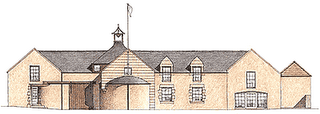
Unless you're fond of map reading for pleasure, even the most traveled world tourist can be excused for not knowing the location of Mauritius.
If, however, you're a fan of fine rums, check your globe. The island nation off the east coast of Africa -- actually off the east coast of Madagascar which, itself, is off the east coast of Africa (see map)-- is showing signs of coming into its own as an international purveyor of fine rums.
Some months ago, as a judge in the first International Cane Spirits Competition, held in Tampa, FL, I had the opportunity to sample Starr African Rum, perhaps the best Mauritius has to offer. The judges awarded it a gold medal in the white rums category (including spirits aged less than a year).
The three other gold medalists in that category were more mainstream labels -- Santa Teresa Blanco, from Venezuela; Prichard's Crystal Rum, from the U.S., and Ron Botran White Rum, from Guatamala.
 My tasting notes for the event called the Starr African Rum "peppery; floral; and, with a long finish." There are hints of cardamom and citrus, all of which work well in various rum punches.
My tasting notes for the event called the Starr African Rum "peppery; floral; and, with a long finish." There are hints of cardamom and citrus, all of which work well in various rum punches.Now, Mauritius will be expanding its sales in India as part of a new trade agreement signed between the two countries. (About 70% of Mauritius's population is of Indian descent.) The agreement allows Mauritius to triple its rum exports to India.
The change is part of a steady growth in the presence of Starr African rum. It received a "Superb 90-95 (Recommended)" rating from Wine Spectator last year, then the godl medal in Tampa, and has been popping up at various "beautiful people" events at which clever PR types have been managing to link the names of show biz luminaries.
When that happens, mainstream success probably can't be far behind.
If you ever plan to visit Mauritius, what can you expect?
Well, there is more to Mauritius than one might think. The republic includes the main island as well as the islands of St. Brandon, Rodrigues and the Agalega Islands. (Mauritius actually is part of a grouping known as the Mascarene Islands, which includes the French island of Réunion 125 miles to the southwest.)
Mauritius (pronounced mah-REE-shus) is known for its scenic beauty. Mark Twain, in "Following the Equator," wrote of it, "You gather the idea that Mauritius was made first and then Heaven, and that Heaven was copied after Mauritius."
Although frequently visited by mariners from many nations, it was not inhabited until the Dutch colonized the island in 1638. It was later governed by France, then Great Britain, achieving independence in 1968 as part of the British Commonwealth, then became a republic in 1992.
It comes by rum making naturally, since about 90% of the cultivated land area is given over to sugar cane, which accounts for 25% of export earnings.
English is the official language, although French is heavily used in the business sector and in the media.
ON THE WEB:
• Discover Mauritius
• Mauritius.com
• CIA World Factbook
• HRW World Atlas

